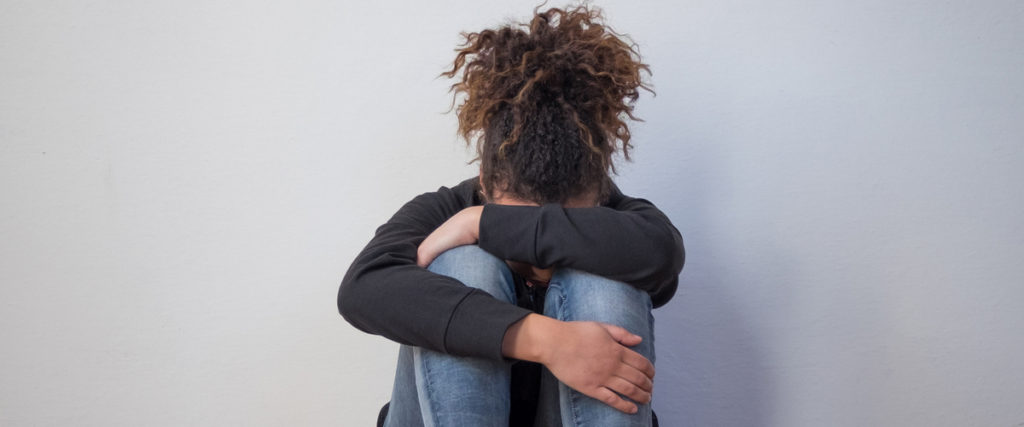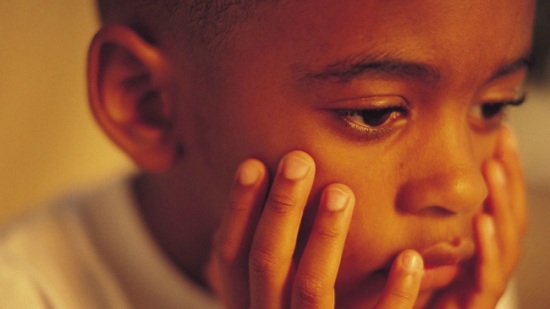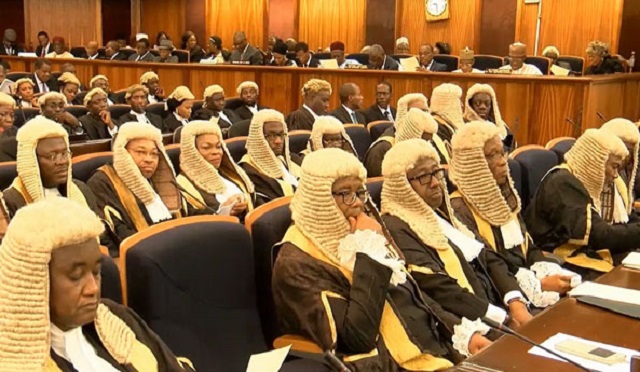Citizen is a column that explains how the government’s policies fucks citizens and how we can unfuck ourselves.

Sarah* grew up displaced. Her mother had her when she was 19 but her biological father was unwilling to take responsibility. When Sarah’s mother remarried, however, her step-father immediately assumed a fatherly role.
“Robert* married my mum, was at the hospital the day I was born, and signed my birth certificate in the presence of his brothers and my family. Here’s where it gets complicated. My Biological father, Ifeanyi*, was aware of my birth (how could he not, he lived next door) and did next to nothing,” Sarah* remembers of the incident. But for all the good intentions Sarah’s step-father might have had, the adoption was not legal and that made it possible for Sarah to be passed around between her mother and biological father who later returned to take responsibility.
Who Owns A Child In Nigeria?
To answer this in the simplest term, a child belongs to the parents. Kingsley Esene, the lawyer we spoke to regarding this conversation explains that the case of child custody has several distinctions. “For those born within wedlock that is both parents witnessed when the child was born, the child belongs to both parents. For those born outside wedlock, some customs used to hold that the child doesn’t belong to the father but to the mother until the father does the needful by paying the bride price on the mother and marry her. However, the constitution of Nigeria has put a stop to such a custom or practice because it provides that nobody should be discriminated against based on the circumstances of their birth. And where a custom and the Constitution clash, the Constitution will always prevail being the supreme law of the country.”
In Sarah* case, she found herself caught between a father who wanted to salvage his regret and a mother who didn’t have the social capital to sue her daughter’s father to court so as to gain full custody.
“My mother used to live in a large block of flats where my father’s flat was, but when she remarried and moved away with me, she would bring me back to visit my granny at that same house.” Sarah* did not know why her mother decided to keep her close to a man who had rejected her, but she does remember that during her visits, her mother allowed her to get close to her biological father who she referred to as Ifeanyi* and only considered to be a kind relative.

“Maybe it was guilt or semi-fatherly love, but he always took care of me. He’d take me out, buy me toys & clothes, spoil me, etc. And I loved him, I just didn’t know he was my biological father. Nobody bothered to inform me, I guess I was too young.” Sarah* says.
But soon enough, her biological father relocated after marrying someone else and for a long time, she didn’t see him. But he maintained his presence in her life through the money and presents he sent to Sarah* and her mum.
“When I was 11, he called my mum and said he’d found a private school for me. I wrote their entrance exam, passed, didn’t think anything of it. Then, my mum told me I had to go live with him and his wife. That was the first time she ever told me he was my father. I didn’t want to leave my mum and stepdad and move away, but the reality was, if my mother hadn’t complied, Ifeanyi would have taken me away.”

According to the law, “a mother has a right to the custody of an illegitimate child to the exclusion of the natural father of the child. For a father to be awarded custody in such a circumstance under the common law, he must establish that the mother is unfit to look after the child.
Under the Customary law, if a woman has a child by a man to whom she is not married, the proper guardian of the child who is entitled to custody is the father of the mother, and this is so even if the child has been legitimated by acknowledgment of the father.
But Sarah* knew that if her mother had gone to court, her biological father would have, in Sarah’s words, “destroyed her and I probably would have never seen her again.”

And so she lived with her biological father for half a year and her mum had visitation days that eventually didn’t work out. “One day, my mum showed up and asked me to go with her otherwise she’d never come back again. Being an adult, I know that wasn’t true, but I was 12 and scared so I went with her. She didn’t inform Ifeanyi & that seemed to be that. I spent 2 years with my parents again, and slowly, Ifeanyi got visitation once again. No legal boundaries or stipulations which turned out to be another mistake. On one of my visits, Ifeanyi took me to write another entrance exam (His Modus Operandi).
I passed, but this was for a boarding school in another state. The next day after my results were in, all my stuff was packed and I was herded off to a different state without my mother’s knowledge. She eventually got to locate me, but by then it was too late and I guess she decided it was better if I had a stable education without moving. She still tried to get me back but it wouldn’t be until I finally left my dad’s house of my own volition.”
The Best Way To Go About Child Custody In Nigeria?
Culturally, legal custody agreements between Nigerian parents are rare and have only begun to change in recent times. The downside of this is the devastating effects it has on the children involved. Children, who are often treated as pawns in a vicious game. And according to the legal experts we spoke with, taking these issues to court would not only cut down on the constant back and forth common with parents who are unsure of where their rights and access to their child begin and end.

It would also prevent the child/children from emotional trauma and provide the child involved with some level of autonomy. It is essential that legal documents covering everything from custody to visitation to child support be arranged for any co-parenting to work. Legal boundaries must also be set and obeyed, and there must also be representation for the child as well.
As Sarah* says, regarding her experience. “Nigerian parents must think their kids are dolls of puppets without feeling, otherwise, I don’t know how they can out children through the agony of their acrimonious fights. My father used his money and influence to try and strong-arm my mum, and my mum denied him access to me in very petty and low ways. They’re both full of blame but at the time, I didn’t know that.

I thought it was my fault, some days, I wished myself dead so I wouldn’t have to deal with all the bitterness and fighting. Some part of me still resents them but I’m getting over it. I’ve met other people with similar backgrounds like mine, some are well adjusted, some are just broken children on the inside. I hope more of them come forward to tell their story.”




